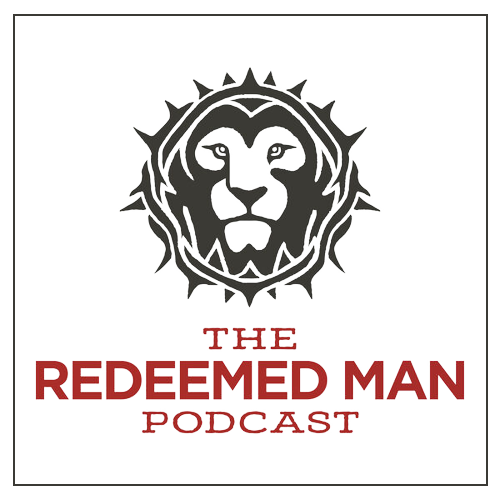Bible Verses about Transformation

At the heart of the Bible, God’s love is at work, making all things new in his image. Whether you’ve walked with Christ for an hour or a lifetime, there’s always more to learn about how God is transforming us, especially in the wake of celebrating Easter. Let’s sort through what exactly the Bible says about transformation, and how we can bring the message of Easter into the rest of the year.
Therefore, if anyone is in Christ, the new creation has come: The old has gone, the new is here! ¹⁸All this is from God, who reconciled us to himself through Christ and gave us the ministry of reconciliation:¹⁹ that God was reconciling the world to himself in Christ, not counting people’s sins against them. And he has committed to us the message of reconciliation.
Transformation in the Christian faith can be a funny thing. Already, Jesus’ sacrifice has offered us the status of a “new creation”: freedom from the eternal consequences of sin and a life-long relationship with our Creator. However, there’s another aspect to transformation: participation in the ministry of reconciliation.
Every day, our shortcomings— active and passive—damage our relationships with ourselves, others, our world, and God. However, in partnership with the Spirit, we are able to share in God’s healing work. In concrete terms, this is the daily work of forgiveness, hospitality, teaching and mentoring, minding the logistics, balancing budgets, and all the other ways we live each day for Christ.
In my church’s children’s ministry, we sometimes refer to the Ten Commandments as “the ten best ways to live” (a practice taken from the book Young Children and Worship). This perspective is not meant to downgrade the seriousness of the delivery—a command—but to reveal the purpose behind it: a loving, all-encompassing relationship between God and humanity.
We don’t “clean up our act” for the sake of following rules. We live in obedience because we know and trust God and his goodness. And, as we live in surrender to the work of the Spirit, God multiplies our efforts, teaching us more about himself and the full life he wills for us.
Reflect
Where in your life has God entrusted you with an opportunity for reconciliation? (This might be a personal work of forgiveness or compassion, a communal work of showing mercy or support to those in need, or even a life-long commitment in your workplace, church, or community.)
If this seems overwhelming, start small: how can you make life easier or fuller for someone else this week?
¹⁰Create in me a pure heart, O God, and renew a steadfast spirit within me.
Like all the best songs, Psalm 51 comes with a backstory. In 2 Samuel, the prophet Nathan confronts King David with a parable on behalf of the Lord. David had betrayed a loyal soldier named Uriah because of David’s lust for the man’s wife. After committing adultery, he schemed to hide his sin; and when this plan failed due to Uriah’s upright character, David set Uriah up to be killed in battle.
(Many sermons have broken down the avalanche of bad choices made. For instance, the first pebble is relatively small. We read in chapter 11 that David chose to remain in Jerusalem during wartime, abandoning his men for the comforts of the palace.)
So, Nathan arrives at the palace and tells a story with a familiar plot. A rich man kills his poor neighbor’s beloved lamb—which the poor man treated “like a daughter” (2 Samuel 12:3). When David becomes incensed by the injustice, Nathan concludes with one of the coldest lines in the Bible: “You are the man!” (v. 7). Then, speaking for the Lord, Nathan itemizes David’s sins and the coming consequences. This must have been especially shocking because David had given these orders in secrecy!
More than words
At the end of the somber rebuke, David repents. And here is where biblical tradition places Psalm 51. David’s psalm is earnest, heavy with grief as he takes accountability for his actions and begs for God’s forgiveness. While we haven’t laid out the entire psalm here, it’s worth taking a few minutes to read it in its entirety.
The forgiveness David seeks includes more than changed actions. He’s talking about an entirely new heart. The relationship we have in Christ is more than the work we put in. The Spirit works for us and in us.
In the Spirit, humility is possible where pride once refused to bend. Forgiveness is possible for even our deepest wounds. And the ways we thought, the priorities we kept, all must be surrendered. If this sounds impossible, you won’t be the first or last to think so. The palmist prays, “Restore to me the joy of your salvation and grant me a willing spirit, to sustain me” (v. 12).
In the moment of our firmest rejection of God’s love, we can still pray with the psalmist this prayer of holy doubt: make me willing; show me a better way.
Reflect
In what parts of your life do you hold the tightest control? Is it a relationship, a routine, or a belief?
Imagine the literal tight grip you have on that aspect, how much energy it takes to maintain. How might that aspect of your life change if you surrendered it to God?
(Note, when we talk about surrender, it’s necessary to anchor ourselves in God’s character. His will for us is always to bring us into closer and more dignifying relationships with himself and others. This is not a call to pain for pain’s sake.)
Therefore, I urge you, brothers and sisters, in view of God’s mercy, to offer your bodies as a living sacrifice, holy and pleasing to God—this is your true and proper worship. ²Do not conform to the pattern of this world, but be transformed by the renewing of your mind. Then you will be able to test and approve what God’s will is—his good, pleasing and perfect will.
Some might consider Romans 12:1-2 one of the most recognizable Bible verses about transformation. But the specifics of what it means to become a “living sacrifice”—and the context for this brotherly advice—deserve a closer look.
Verses 1 and 2 present a thesis statement followed by Paul’s typical logical case spelled out in a practical response. We can think of it as a question and response.
Question: How are we meant to respond to God’s mercy?
Answer: A) Get to know God, and allow God to re-write your priorities, instincts, and actions (Romans 12:1-2). B) Live in humility, mutual love and partnership, radical forgiveness and compassion, self control, and the joy of the Lord (Romans 12:3–Romans 15:13).
In Paul’s thesis, we see the “why” for the frankly overwhelming task of surrenduring our entire lives. Just as John said in his first letter: “We love [God] because he first loved us” (4:19). Offering our lives is the “true and proper” (Romans 12:1) response to God’s mercy. And as we are renewed, we are able to “test and approve”—or, as the psalmist writes, “Taste and see that the Lord is good” (Psalm 34:8).
So what do we do when God’s mercy feels fainter than God’s righteousness? I’ve set us up a bit here, because these are not characteristics in opposition. The mercy of God is the righteousness of God. And, the righteousness of God is the mercy of God.
“Crawling off the altar”
The concept of a living sacrifice is strange. Isn’t the point of a sacrifice the loss and the absence? Sometimes, the concepts of hardship and humility twist into an inverted gospel: our pain is our strength; our pain proves our devotion. Romans 12:1-2 suggests a different rationale. The notes of the NET Bible (New English Translation) underscore the oddity:
[T]he terms alive, holy, and pleasing are showing how unusual is the sacrifice that believers can now offer, for OT sacrifices were dead. As has often been quipped about this text, “The problem with living sacrifices is that they keep crawling off the altar.”
If you’ll excuse a humble word nerd, it’s important to note how “holy and pleasing” relate to the idea of the living sacrifice: they’re direct descriptors. We can then understand that “living” is essentially tied to the way God sees us: pleasing and perfect.
But what about Paul’s note that “all have sinned and fall short of the glory of God” in this very same letter (Romans 3:23)? The clue lies in the repetition of “pleasing and perfect” that comes in verse two. God’s creative will creates. This might sound obvious, but God can’t help being a creator. And, God’s love creates new life, new minds, and continually replicates his goodness.
As we fall into relationship with Jesus, our pleasing and perfect God sees us as he made us. And God makes us more like him as we get to know him better. We embody worship as we become more like our creator. Transformation, then, is the thorough rebuilding of our minds on a foundation of familiarity and deeply personal care.
Reflect
What do you think God is saying to you today? Why do you think that? Does this voice reflect the loving, self-sacrificial God Paul’s writing about? If not, why does that message come to mind?
Where have you seen or heard the goodness of God in your life recently? Imagine, what does surrender to the God of that small miracle look and feel like?
When the Bible talks about transformation, it’s important to keep a hold of the how as much as the why. Transformation in Christ is entire, both the work of our own devotion and the Spirit’s power in our life. Most importantly, our transformation is built on the trustworthy love and power of God. These three passages are a great place to start if you’re looking to explore what this might look like in your life.
I’ll end with a challenge: make God’s Word part of your day. Pick one or two verses from the sections we walked through today and work toward memorizing them. Maybe that’s reciting or listening to them every morning on your commute, coming up with some motions for key words, or even creating a simple doodle.
However you do it, keep reflecting and you may find the meaning shifts for you over the course of your time with the passage.
Remember, transformation in Christ is a life-long project with setbacks and surprises. By the grace of God and in his company, we walk on.
Connect with The Redeemed Community
If you’re inspired to practice building lasting relationships and would like to journey alongside like-minded believers, consider joining one of The Redeemed’s small groups. Whether you prefer meeting in person or connecting online, our community is here to support and grow with you.
Join us and discover how our relationships make us stronger than ever.
More Posts From The Redeemed
The Redeemed offers articles and resources on spiritual growth, relationships, family, overcoming trauma and loss, and more. Providing guidance for incorporating Biblical teachings into our everyday lives.

Breaking Free From Performance and Shame Through Your Identity in Christ
Maybe you’ve heard the name Frank Abagnale—the real-life con artist who became famous in the film Catch Me If You Can. Before the age of 21, he successfully convinced the world that he was, among other things, an airline pilot, doctor, and lawyer. Each identity came with confidence, credentials, and applause. And for a while, the masks worked—Abagnale fooled many people. However, it eventually caught up with him. Every false identity he wore led him deeper into consequence, fear, and exposure.

Prayer and Fasting in Community Strengthens Christian Men
Who are you becoming in Christ?
Prayer and fasting are deeply personal practices, but they are not meant to be practiced only in isolation. When they are shared in community, they become places of encouragement, accountability, and deeper formation. As you discuss the following questions, resist the urge to perform or fix. Instead, listen well, speak honestly, and encourage one another. Growth begins with truth, and God often uses community for the forming work he wants to accomplish in us.

The Discipline of Self-Denial: Why Christian Men Need Prayer and Fasting
We live in a culture obsessed with self-indulgence. From the moment we wake up, we’re told we deserve more: more comfort, more success, more experiences, more stuff. Bigger is better. Newer is necessary. If something feels hard, inconvenient, or uncomfortable, we’re encouraged to avoid it or upgrade out of it. The message is constant and convincing: you owe it to yourself.




